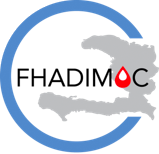Depending of the cardiovascular disease, the symptoms will be different. They are so many that we will talk only about the symptoms of cardiac infarction, heart failure, stroke and rheumatic heart disease.
Symptoms of infarction:
It is common for cardiovascular disease affecting the blood vessels to show no symptoms. An infarction or stroke is sometimes the first sign of the underlying disease.
An infarction can cause the following symptoms:
- pain or discomfort in the central part of the chest;
- pain or discomfort in the arms, left shoulder, elbows, jaw or back.
In addition, the person may experience difficulty breathing or shortness of breath, feel sick or vomit, feel dizzy or faint, be sweating cold or pale. The likelihood of experiencing difficulty breathing or nausea, vomiting, or pain in the jaw or back is stronger for women.
Symptoms of stroke:
The most common symptom of a stroke is a sudden feeling of weakness in the face, arm or leg, most often on one side of the body. Stroke can also cause sudden onset of numbness in the face, arm, or legs, especially on one side of the body, confusion, difficulty speaking or understanding speech, visual difficulties in one eye or both, difficulty walking, dizziness, loss of balance or coordination, severe headache with no known cause and fainting or loss of consciousness. People with these symptoms should consult immediately.
Symptoms of heart failure:
The most common symptoms of heart failure are: breathlessness ( after activity or at rest; it may worsen when lyin down), fatigue (most of the time), swollen ankles and legs (oedema: may be better in the morning and get worse later in the day). Less common other symptoms: persistant cough, wheezing, palpitations, anxiety...
Rheumatic heart disease
Rheumatic heart disease is an attack of heart valves and muscle resulting from inflammation and scarring caused by rheumatic fever. The latter disease, caused by a streptococcus bacteria, usually begins with tonsillitis or tonsillitis in children.
Acute rheumatic fever mainly affects children in developing countries, especially in situations of generalized poverty. Globally, nearly 2% of cardiovascular deaths are related to rheumatic fever, while 42% are related to ischemic heart disease and 34% to cerebrovascular disease.
Symptoms of rheumatic heart disease:
- shortness of breath, fatigue, cardiac arrhythmia, chest pain and syncope for rheumatic heart disease;
- fever, pain and swelling of the joints, nausea, stomach cramps and vomiting for rheumatic fever.


